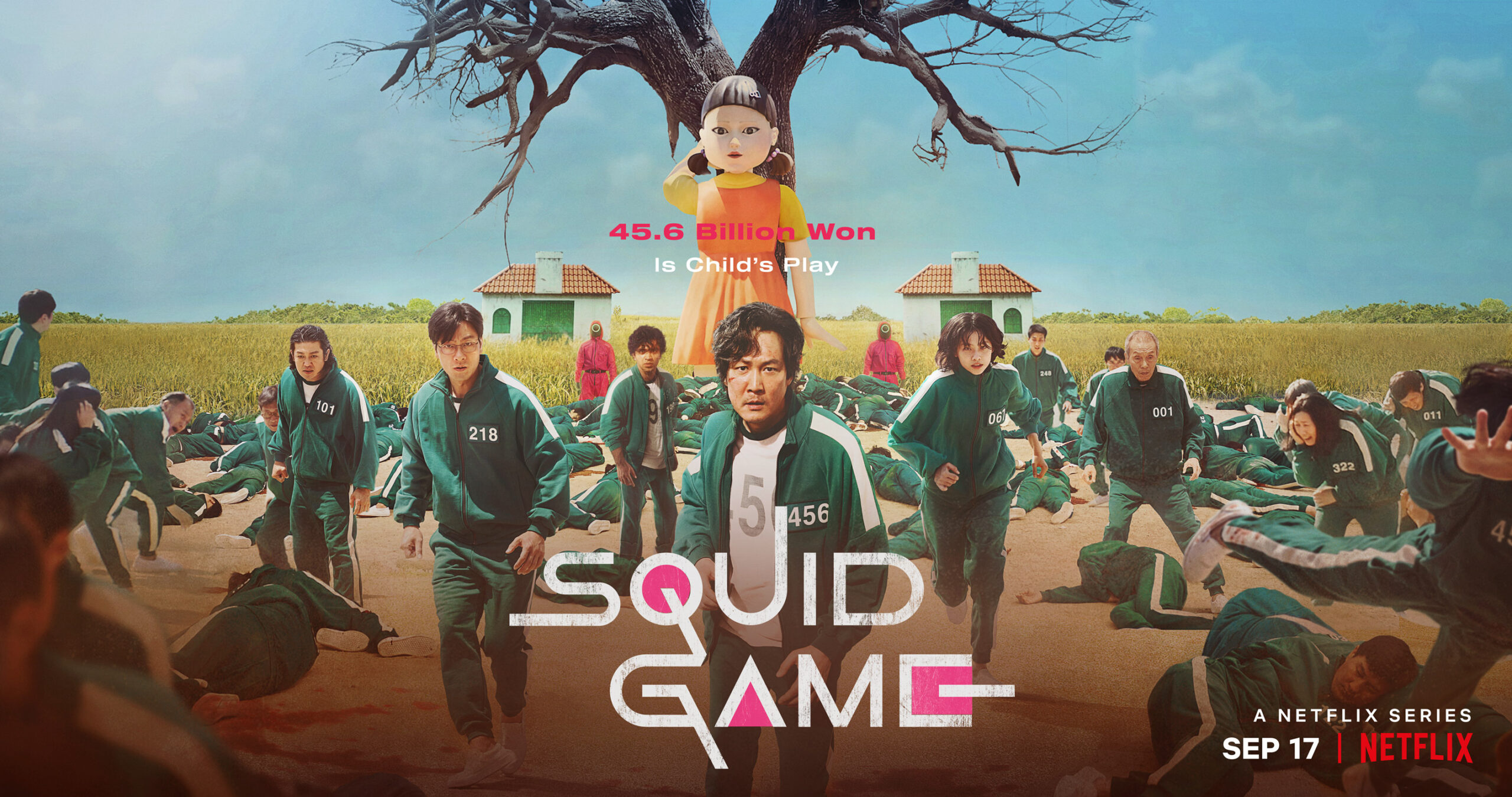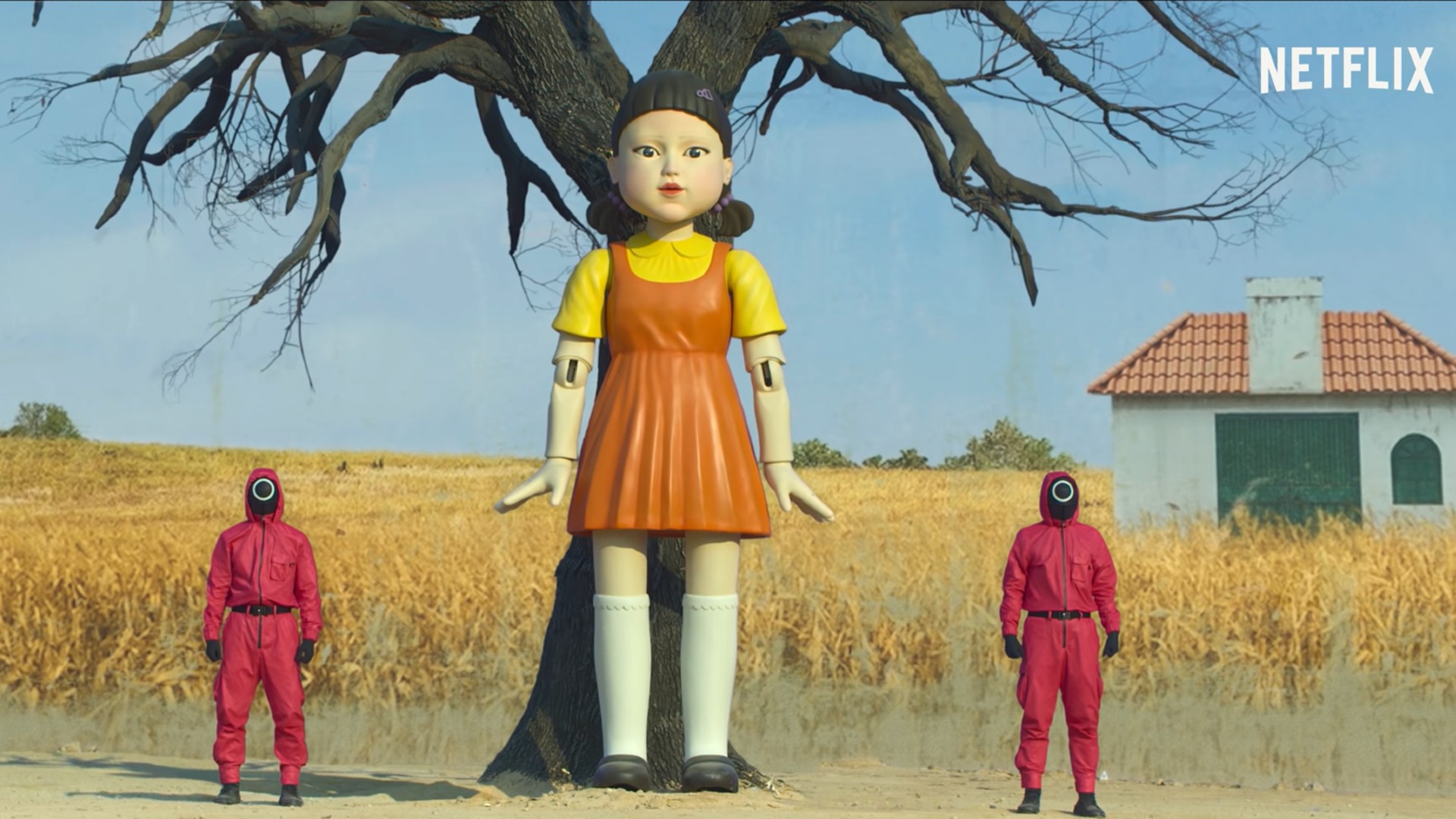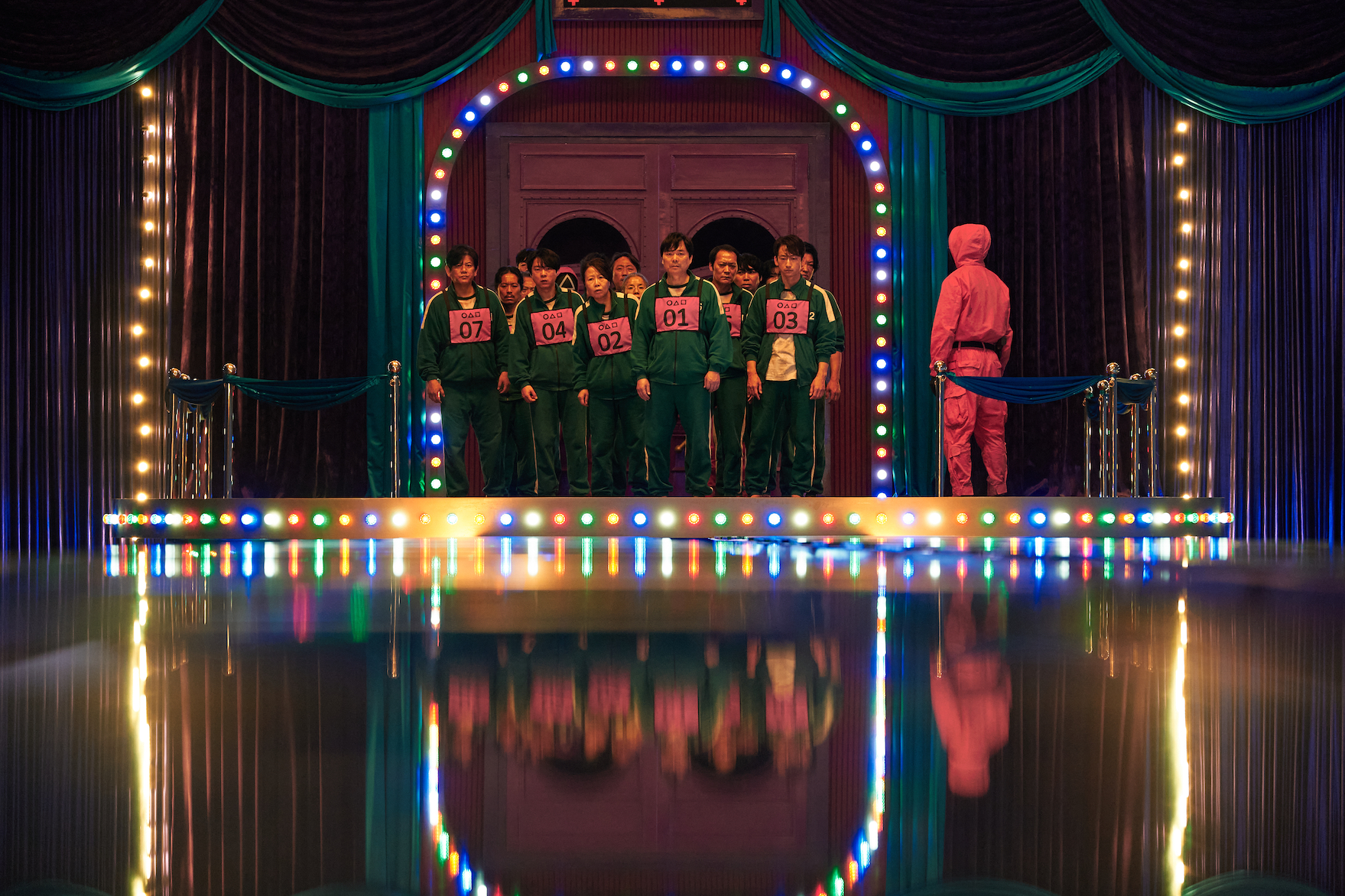If you haven’t watched Squid Game on Netflix yet, then this is your warning that there may be spoilers ahead!
Squid Game has already become one of Netflix’s biggest successes when it comes to online streaming. A total of 142 million “member households watched the series within the first month of it releasing, smashing the Bridgerton Season 1 record of 82 million viewers. The series follows 456 debt-ridden players as they all compete against one another in a selection of well-known children’s games for a chance to win a cash prize of 45.6 billion Won (£28m).
Squid Game provides not only a great TV show to get your teeth into, but an excellent insight into the foundations that are needed for successful teamwork to which we will explore below.

Image Source – Squid Game Netflix
Red Light, Green Light
Game Rules: In the original children’s game Red Light, Green Light, also known as ‘Statues’ or ‘What Time Is It, Mr Fox?’ in the UK, one player is selected to face the wall, whilst the others try to cross the finish line. However, if the play facing the wall turns around and shouts “red light”, the players must stop immediately and stay still. If they are caught moving, then they are eliminated.
A key lesson learnt throughout this game is that patience and listening is a virtue. Whilst the 5-minute timer counts down, what seems a relatively easy game ends in disaster for over half of the players. The first few to set off showed no patience by not assessing what was ahead of them, rushing into the game resulting in their fatality. Sheer panic amongst the players then resulted in a high number of deaths. The players that did not panic and were patient at the start remained in the game.
Player number #218 (Sang-Woo) learns quickly that the winning formula is to move cautiously behind the person in front of you, and to keep moving on each green light. Player #218 then relays this information to #456, who has frozen in fear, which motivated him to get up and move forwards. In this scenario #218 was acting as the leader and offered valid solutions to player #456.
Dyfrig Jenkins, a Leadership Coach states, “Businesses rely on activity, this includes leaders like you being proactive about things that are preventing you from moving forward. Why is it that we are taught to walk and talk, read and write but developing listening skills is rarely something our parents teach us? Listening to hear and understand doesn’t feature in education curricula and its rarely a skill we are assessed for at job interviews! Most of us are fortunate to have ears that work, but few of us use them to our full advantage, especially when we are working under pressure…”

Honeycomb Challenge
Game Rules: Individuals select either an Umbrella, Star, Triangle or Circle shape. They are then given a tin which contains a dalgona (Korean candy made with melted sugar and baking soda) and a needle. The objective of the game is to cut out the shape without breaking it within 10 minutes.
Player #456 Gi-Hun drew the short straw by choosing the umbrella shape, which consisted of many bends. While under time restraint, he eventually figures out that licking the back of the dalgona will help to release it, after a drop of his swear fell on to the Dalgona and made it transparent.
The key takeaway learnt here was to implement patience, but also to think outside the box, or the tin in this case! Although contestants were only given a needle, creative thinking played a key role in some of the players making it through to the next round. Player #456 shared his newfound knowledge with the other players, which ultimately allowed them to also get through the next round.
As Dalai Lama said once, “Share your knowledge. It’s a way to achieve immortality.”
There are many reasons why organisations, or individuals for that matter, need to embrace creativity and innovation today. The pace of global change is accelerating, the number of websites has passed 1 billion globally, the ways of doing business and creating and selling products and services has changed. After all, who would have thought a few years ago, Virgin would be building spaceships, Google would be moving into the self-drive cars market that we’d be living through a global pandemic or that world leaders would meet to slow down the increasing effects of climate change? Creativity and innovation are key to our survival and success.
Tug of War
Game Rules: This is probably one of the most known games in the series. Tug of war sees the players split into teams, each chained to an end of a braided rope. The aim of the game is to supress the other team by pulling the rope at the same time, dragging them off the high platform. Consequently, ending in their death.
Going into the game, player #456’s team was shown to be weaker, with a noticeable strength and weight difference. Player #001 used his age, knowledge, and wisdom to his advantage to create a winning strategy by undertaking the leadership role. “All you need is a good strategy, combined with good teamwork”. If you haven’t learnt already, good teamwork requires a good leader. A leader needs to be someone strong, not so much physically as Squid Game shows, but mentally to drive the team forward and maintain positivity.
It’s about how you arrange your team, with each player holding an important role in helping to secure the win. Having a strategy like this is critical. A diverse workforce made up of different skill sets is integral to a successful team.
When one strategy didn’t work, the team communicated with one another and adapted a new plan. This lesson can be applied to the workplace. As Bob Buckman once said, “Don’t be afraid to share what you know, because you know it better than anyone else!”.
Dyfrig states, “In our volatile, uncertain, complex and ambiguous world, our understanding of normal continues to be challenged. Leaders and their teams must find a sense of courage, empathy, and trust.Leadership determines how teams feel and work in times of crisis, your team will remember how they were led and how they worked together – or not. They are and will be concerned about the future and how much their leaders committed to finding the best solutions for and with them.”

Glass Stepping Stone Bridge
Game Rules: Hosted in a gigantic room, players are given the opportunity to choose between 1 and 16. Players are then instructed to cross the glass bridge in number order. The stepping stones before you are made from one of two types of glass, one tempered glass and the other normal glass. However, the normal glass will break even if just one person steps on it.
During the game, players were making their choices on luck, and not assessing the panels. This game saw players looking upon the mistakes that the first players made to move them forward. A key lesson learnt here is to observe your surroundings and apply these to move forward.
The player in 12th position announced that he worked for a glass manufacturer for over 30 years and could tell the difference saying, “If you look at tempered glass from an angle under the light, you can see faint stain marks”. However, sadly he lost his live when player #218 lost patience in his skill set and pushed him off the bridge.
Working together as a team consists of a range of specialisms and knowledge. The success of one area of ateam or a business relies on many others completing their own tasks well. Working in a group can be both rewarding but also challenging. There are often different levels of knowledge and skills, and people behave differently too. Working in high performing teams makes it easier to develop great working partnerships, overcome challenges and hit targets, but most importantly, everyone needs to feel trusted, valued and a valuable part of the collective.

Squid Game Team Building Activity
Ready to give it a go? We have our very own version, Quid Games, that will test your teamwork, patience, and creative skills. This can be delivered both indoors and outdoors and adaptable dependant on your requirements.
Get in touch today to discuss your next team building event. https://www.gotoevents.co.uk/goto-events-contact-us/
